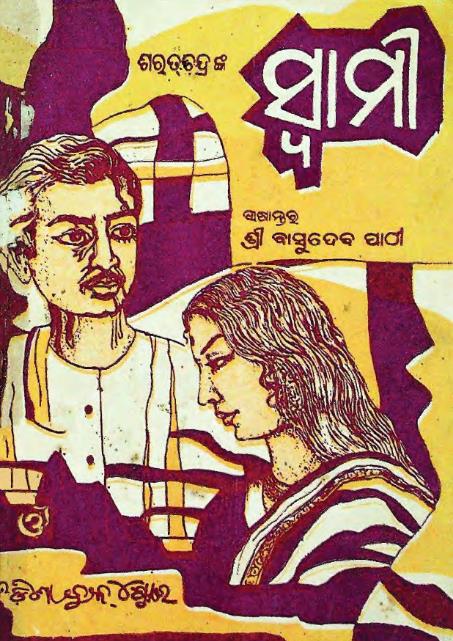Sarat Chandra Chattopadhyay is a celebrated figure in Indian literature, known for his poignant storytelling and deep understanding of human emotions. One of his notable works, Swami, has been translated into Odia by Basudeb Pathi. First published in 1979, with a second edition released in 1983, this novel captures the essence of social issues intertwined with rich narratives that resonate with readers even today.
At its heart, Swami is a profound exploration of personal and social conflicts set in a culturally vibrant background. The story revolves around a young boy named Swami, whose life unfolds within the confines of societal expectations and familial obligations. Chattopadhyay’s ability to depict the innocence of childhood contrasted with the harsh realities of adult life is one of the hallmarks of the novel.
The plot begins by presenting Swami as a naive and carefree boy, blissfully unaware of the complexities surrounding him. As the story progresses, Swami encounters a series of challenges that compel him to confront societal norms and familial expectations. His interactions with various characters—the stern yet loving father, the nurturing mother, and friends—offer insight into the multidimensional aspects of Indian society.
What makes Swami particularly compelling is its relevance to contemporary social issues. The novel delves into themes of poverty, education, and the often burdensome expectations placed on children. Through Swami’s experiences, Chattopadhyay raises questions about the educational system, social hierarchy, and the moral dilemmas faced by individuals trapped in the web of societal obligations. The translation by Basudeb Pathi effectively preserves the emotional nuance of the original text, ensuring that readers can appreciate the original’s depth while connecting with the story on a personal level.
Pathi’s translation not only captures the essence of the narrative but also makes it accessible to Odia-speaking audiences who may not be familiar with Chattopadhyay’s original Bengali prose. His effort in translating such culturally rich content invokes a sense of pride and promotes an appreciation of literature in regional languages. It invites readers to explore the intricacies of their own society through Swami’s journey, encouraging reflection on the values that shape their lives.
The novel’s portrayal of Swami’s maturation is symbolic of the broader societal transitions within India. It mirrors the struggles of a generation grappling with the tension between tradition and modernity. As Swami comes to terms with his identity, readers are compelled to ponder the changing dynamics of their own existence.
In conclusion, Swami, as translated by Basudeb Pathi, is more than just a story about a young boy; it is a reflection on societal structures, personal growth, and the poignant journey from innocence to experience. The novel offers a lens through which to examine the challenges faced by individuals in a rapidly changing world, making it a significant contribution to both Odia literature and the broader Indian literary landscape. Through this translation, Pathi ensures that the voice of Sarat Chandra Chattopadhyay continues to resonate with new generations, sparking dialogues that remain pertinent in today’s society.
Books Info
| Books name | Swami/ସ୍ୱାମୀ |
| Author | Sarat Chandra; Basudeb Pathi, Tr. |
| No Of pages | 93 |
| Publisher | Gobinda Chandra Patra |
| Publication | 1979, 1983 2e. |
| Printed At | Sri Sri Dhabaleswara Press |
| Distributor | NA |

